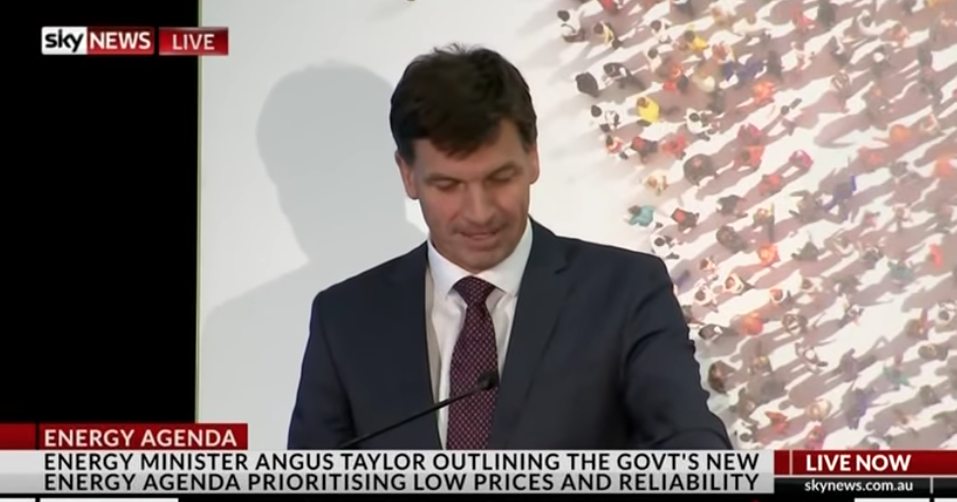Following the government announcements on new measures to reduce power bills, including possible new coal investments, good news came from Energy Minister Angus Taylor, saying the rooftop solar rebate is here to stay until 2030.
“There’s no plan to change the Small-scale Renewable Energy Scheme (SRES),” Taylor said in an interview with The Guardian.
“The SRES and the large-scale renewable energy target are around until 2030. They fade between now and 2030, there’s decline as technology continues to improve. That’s our position.“
Earlier this year, the Australian Competition and Consumer Commission (ACCC) recommended to prematurely wind down taxpayer-funded incentives for sub-100kW solar systems by 2021. Now Taylor has dismissed this proposal, saying there will be no scaling back.
“The deeming rates fall every year between now and 2030. We are not proposing to change that. That’s designed to ensure the subsidy comes off as technology continues to improve,“ Taylor said.
While the ACCC recommendation sent a shockwave through Australia’s solar industry and community when suggested, big utilities such as Origin Energy and EnergyAustralia backed the initiative.
The opposition to rebates can be explained by the fact that soaring rooftop solar installation figures lead to a fall in residential demand and thus revenue loss for big electricity retailers.
Overall, the axing of the SRES was supposed to reduce annual electricity bills for non-solar households by $15 a year, but posed a major threat to diminish the uptake of rooftop solar picking up the pace across the country.
While it continues to reduce in value every year, the SRES program has helped Australia approach the landmark of two million solar PV rooftop systems installed. This year alone is expected to see more than 200,000 sub-100 kW systems installed, which will account for more than 1.4 GW.
“Rooftop solar, backed by the SRES, plays an important role in reducing household and business exposure to higher energy prices,” Clean Energy Council (CEC) Chief Executive Kane Thornton said.
“It has delivered many significant benefits, including more than $10 billion of consumer investment in the last five years, and it plays a vital contribution to safety and consumer protection by mandating product standards and installation practices.”
To protect the SRES from the chopping block, a number of campaigns were launched across Australia. Solar Citizens reported gathering around 10,000 signatures, while the Smart Energy Council ran another strong campaign, dubbed Save Solar.
“This is a huge win for consumers around the country. The SRES makes investing in rooftop solar affordable,“ said Solar Citizens’ National Director Joseph Scales, noting that the cost of rooftop solar would increase by approximately 30% by axing the SRES.
Other measures – not so good news
The Morrison government came up with a range of policy interventions on Tuesday to boost investment in new “reliable“ power generation, holding out the prospect of government support for new coal-fired power stations.
“We’re going to force big electricity companies to put more fair dinkum, reliable energy power into the system. Renewables are great, but we also are needing the reliable power when the sun isn’t shining and the wind isn’t blowing. That’s what keeps the lights on,“ said Prime Minister Scott Morrison.
According to Morrison, new coal-fired power stations could be part of the mix “where it stacks up” and “where it meets all the requirements”, noting that the government do not take positions on the source of the fuel.
The government said its goal will be to put energy retailers in line as a measure to reduce power prices before January, including forced divestment in Australia’s energy sector. Other interventions would include providing a floor price, contracts for difference, cap and floor contracts and government loans, including discounted loans for new baseload power generation.
Such energy policy statements cast a shadow on the future appetite for clean energy investment in Australia and threaten investor confidence, coming on top of Taylor’s earlier announcement that there will no replacement for the renewables target when it expires in 2020.
“New investment in energy generation is critical to increasing competition and supply, and driving down wholesale power prices,” CEC Chief Executive Thornton said. “But providing debt or equity for specific new projects and technologies could be disastrous for investment confidence.”
While slowing down investments, such political interventions could also drive power prices higher and diminish the hard work down under the Renewable Energy Target, which has been achieved ahead of schedule.
“Private investors have put a record $15 billion into large wind and solar in the last 12 months, which will help in bringing down wholesale power prices,” he said, noting that these investments have been driven by the RET.
“While new investment no longer requires subsidy, it does need policy certainty and stability to attract the ongoing capital investment necessary to replace coal generation and secure a reliable and affordable power supply.”
This content is protected by copyright and may not be reused. If you want to cooperate with us and would like to reuse some of our content, please contact: editors@pv-magazine.com.









By submitting this form you agree to pv magazine using your data for the purposes of publishing your comment.
Your personal data will only be disclosed or otherwise transmitted to third parties for the purposes of spam filtering or if this is necessary for technical maintenance of the website. Any other transfer to third parties will not take place unless this is justified on the basis of applicable data protection regulations or if pv magazine is legally obliged to do so.
You may revoke this consent at any time with effect for the future, in which case your personal data will be deleted immediately. Otherwise, your data will be deleted if pv magazine has processed your request or the purpose of data storage is fulfilled.
Further information on data privacy can be found in our Data Protection Policy.